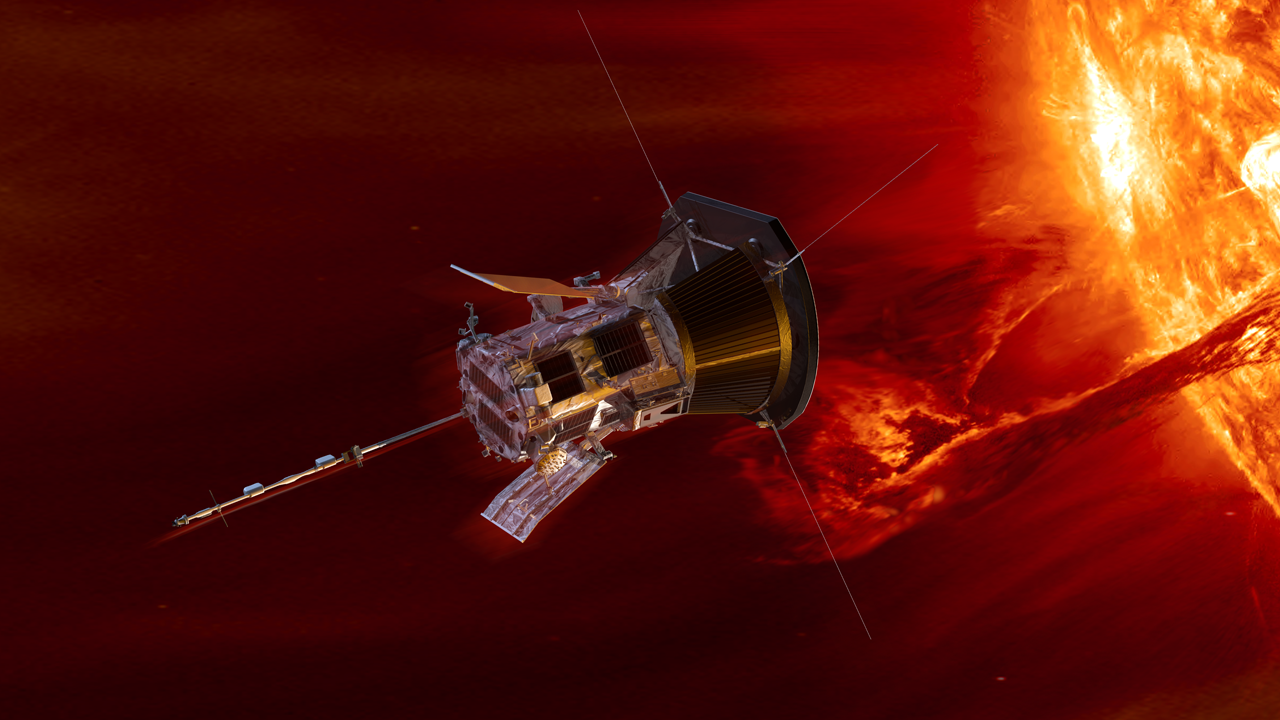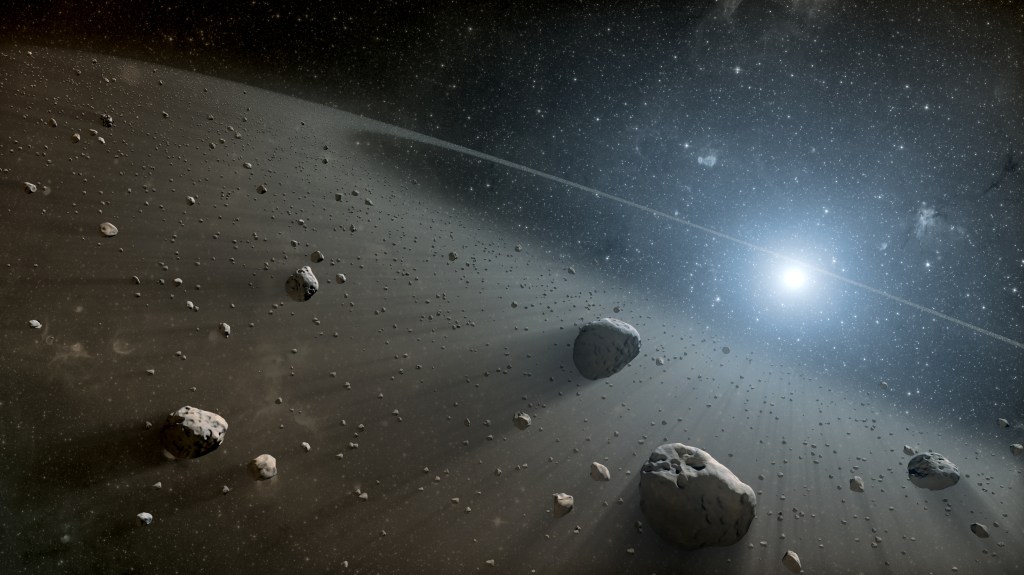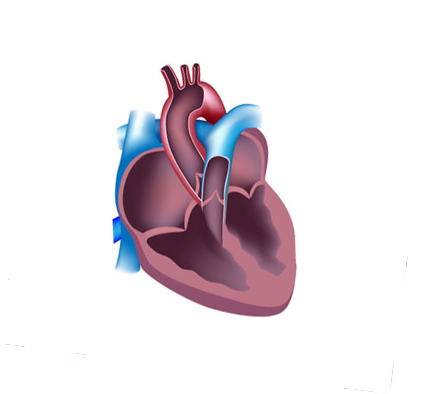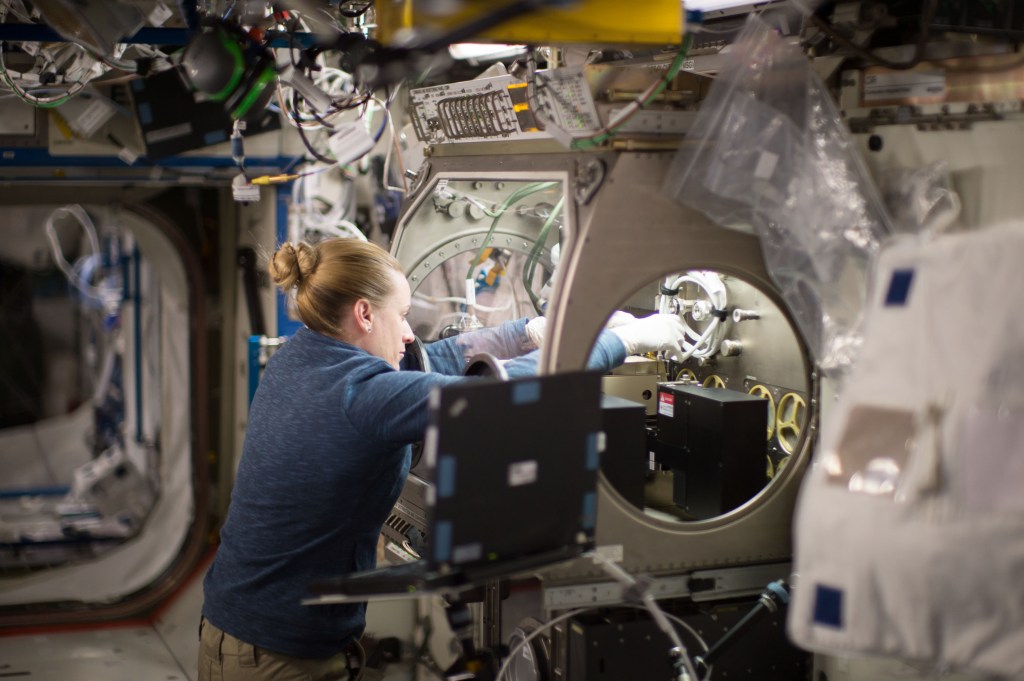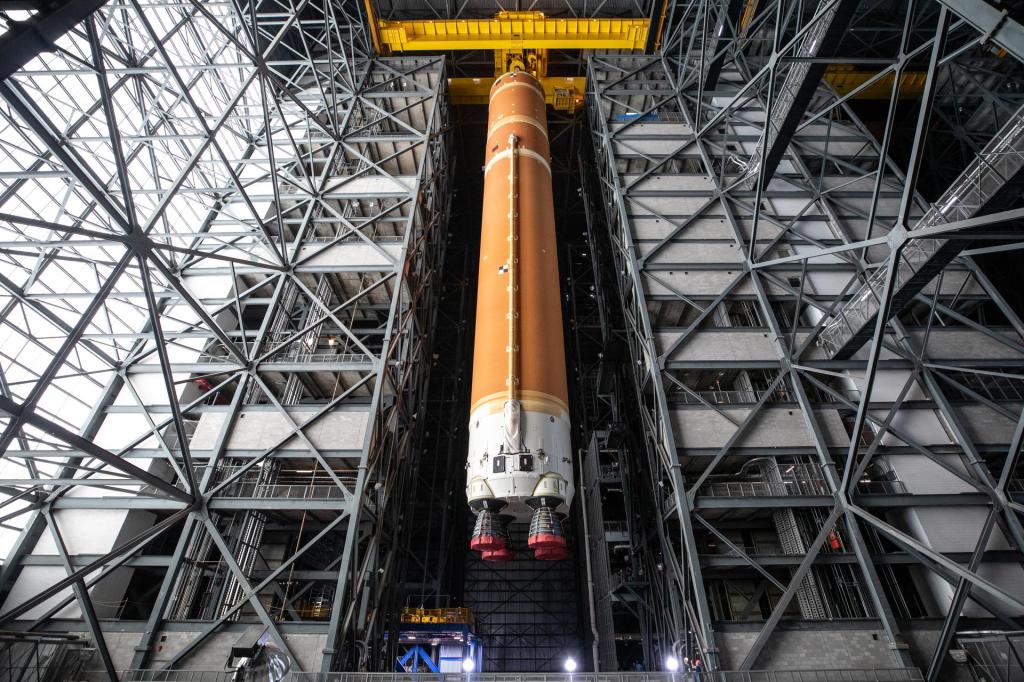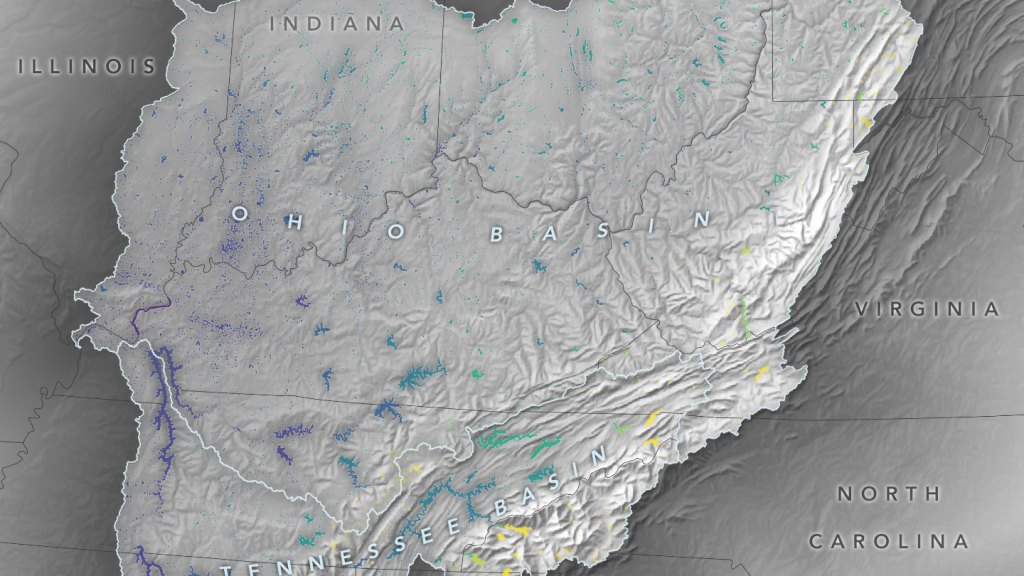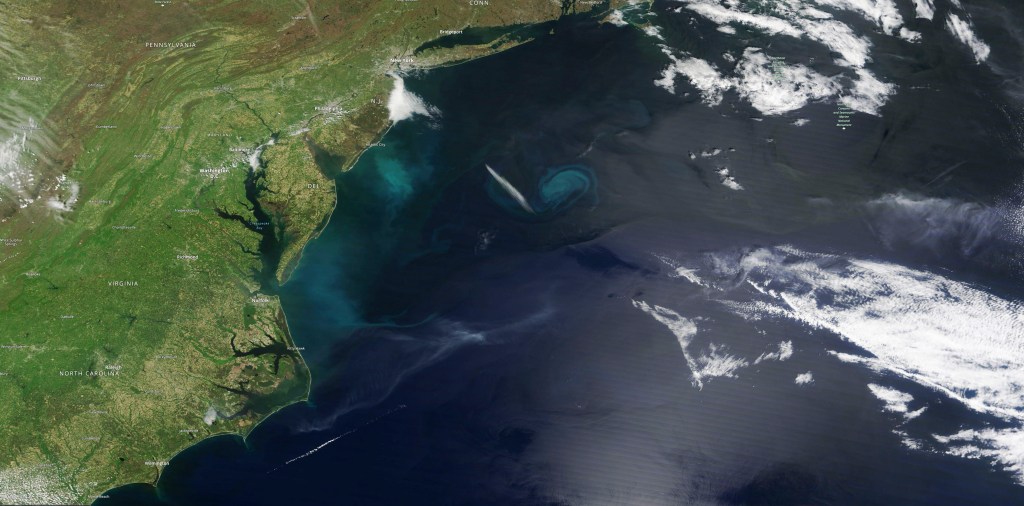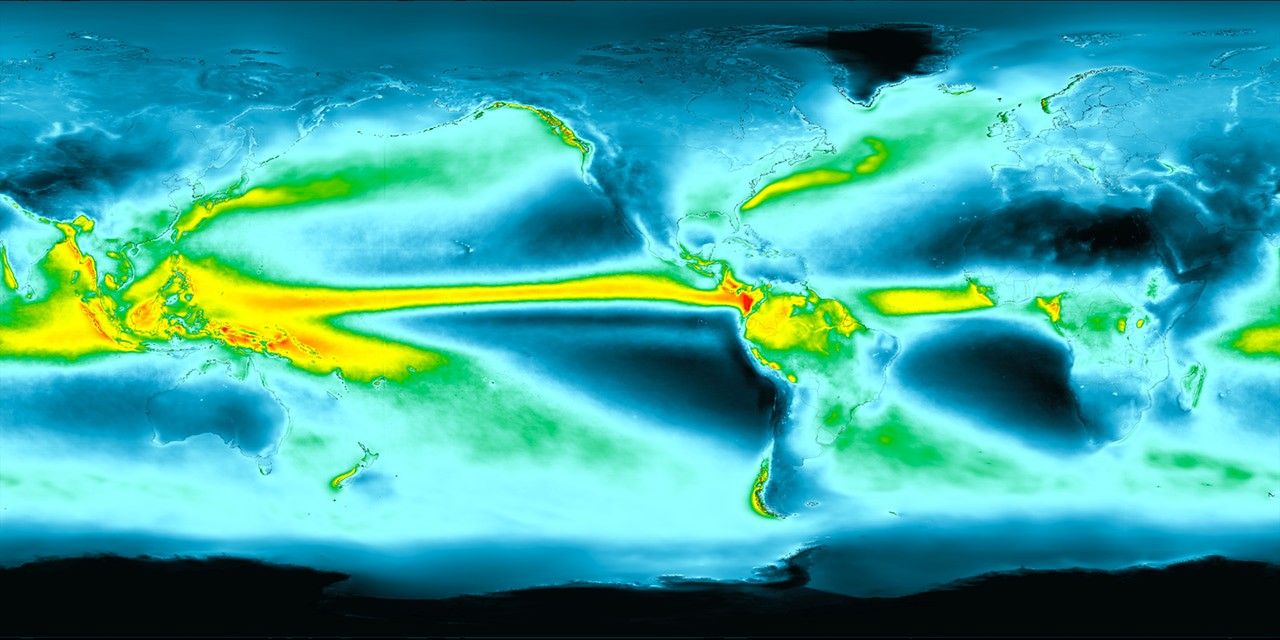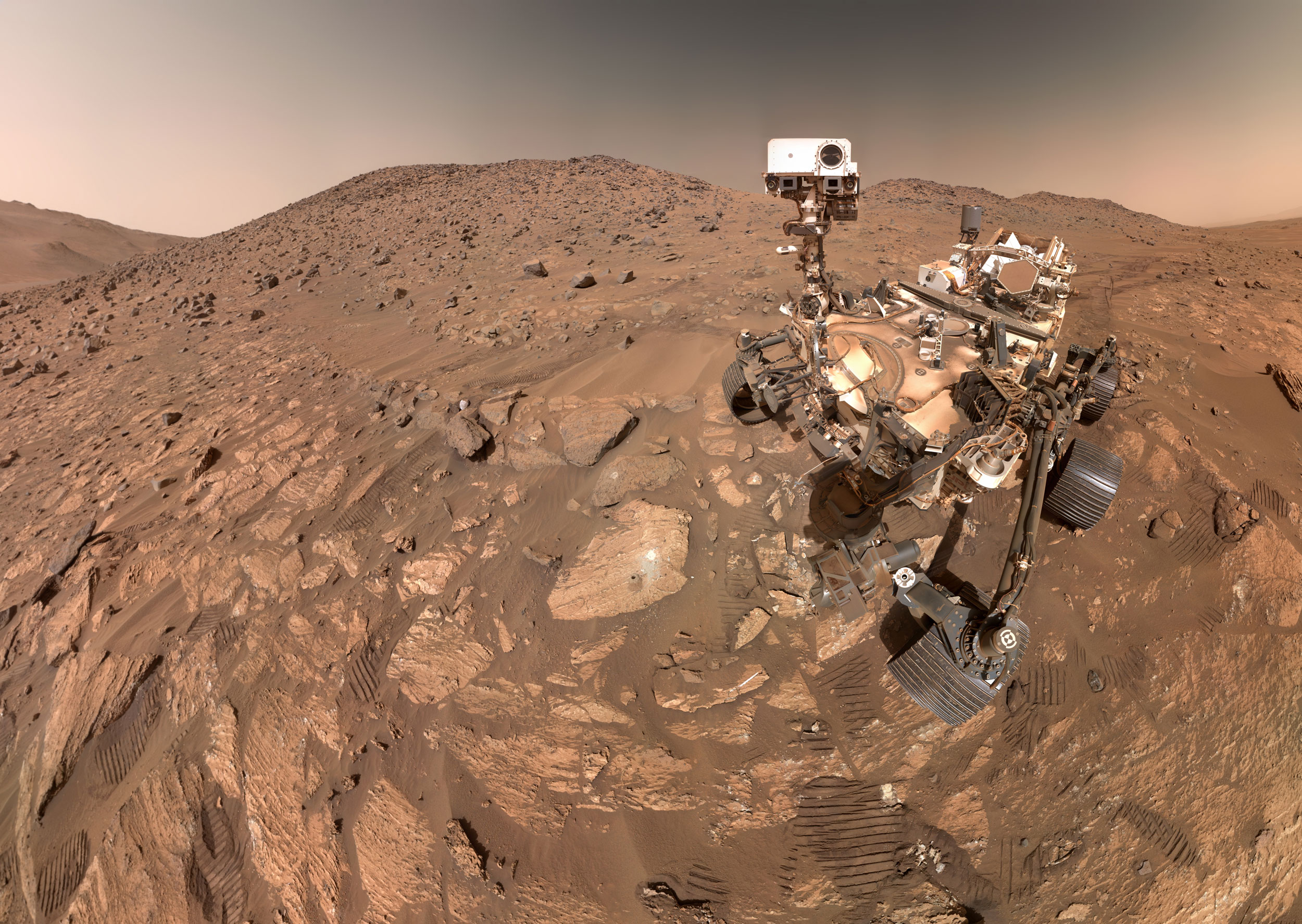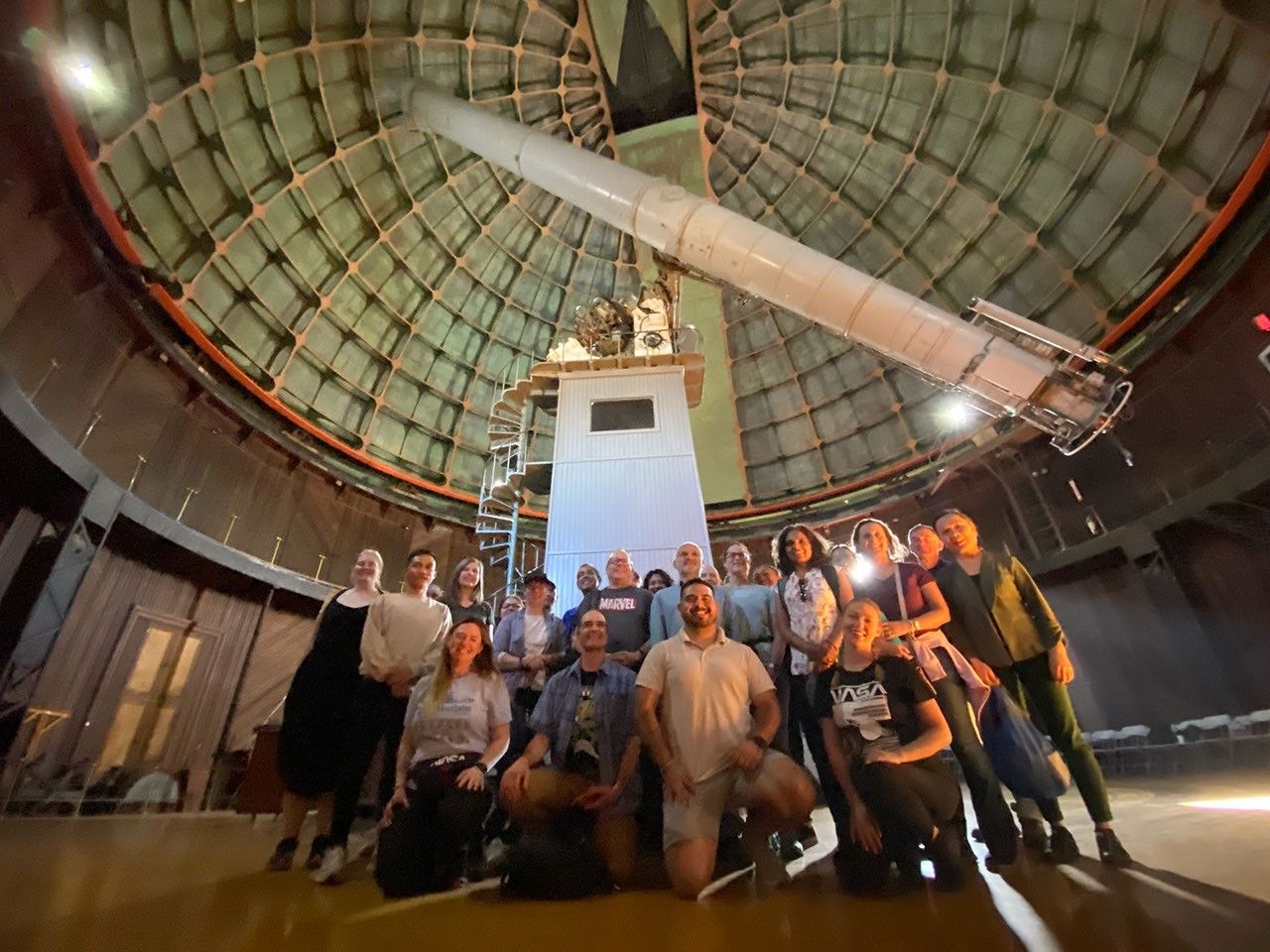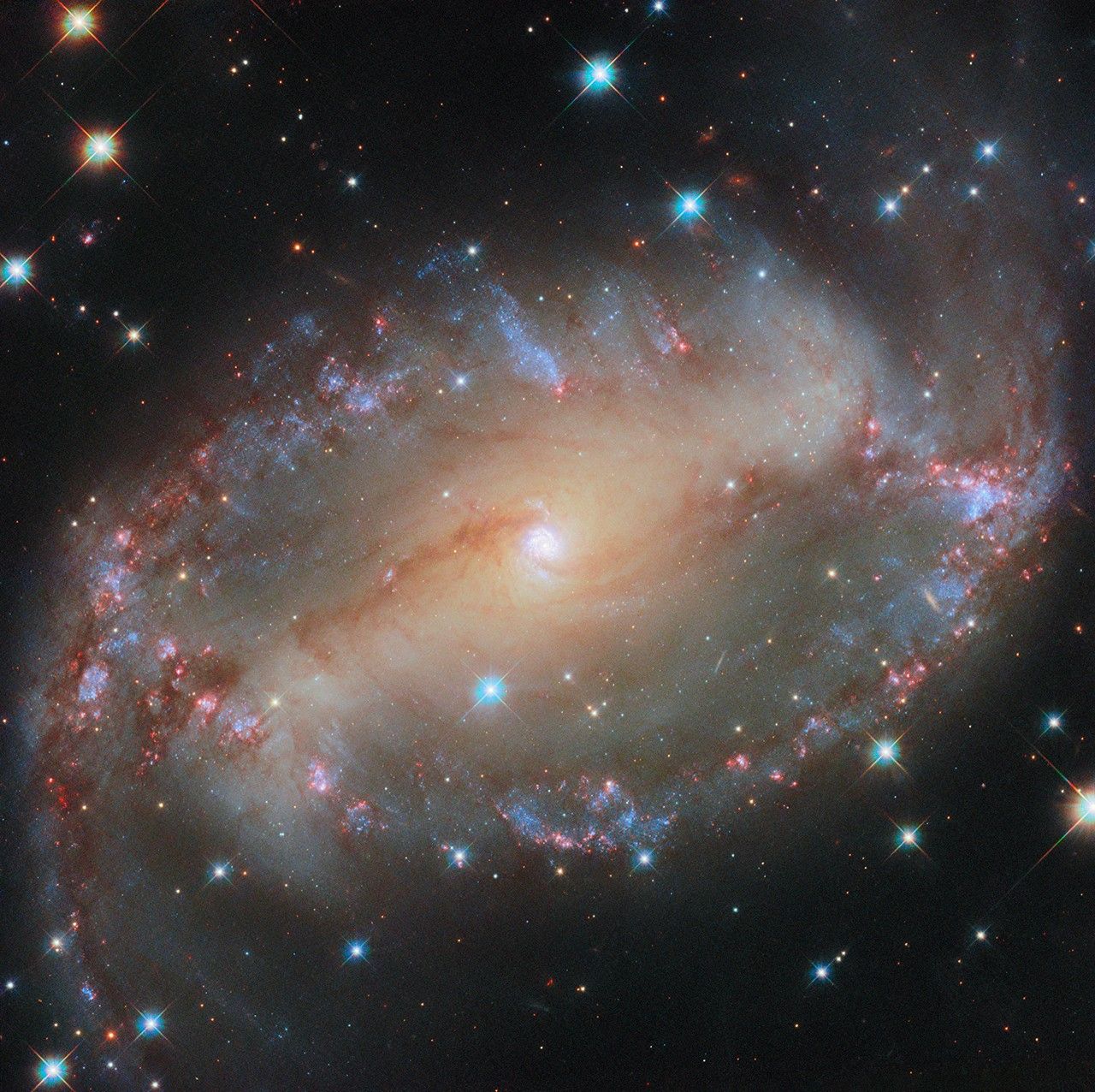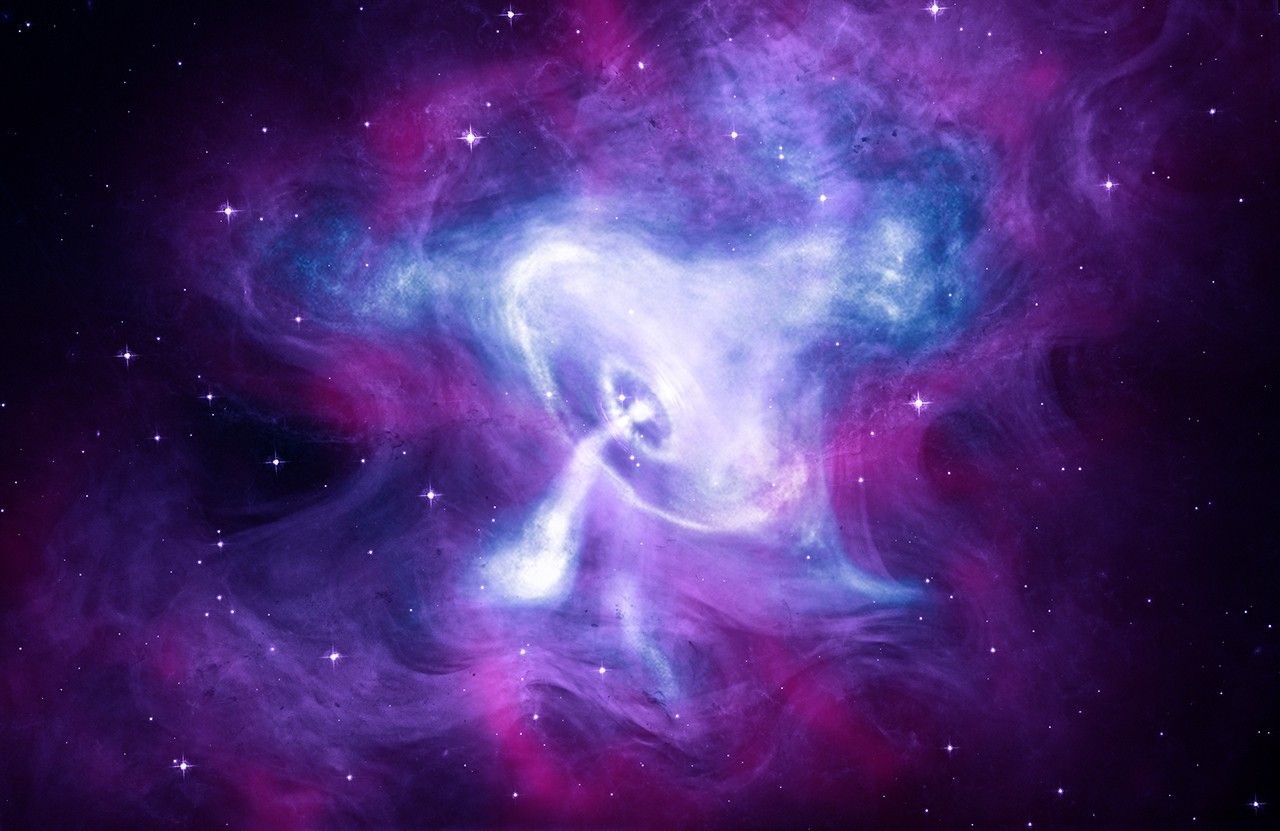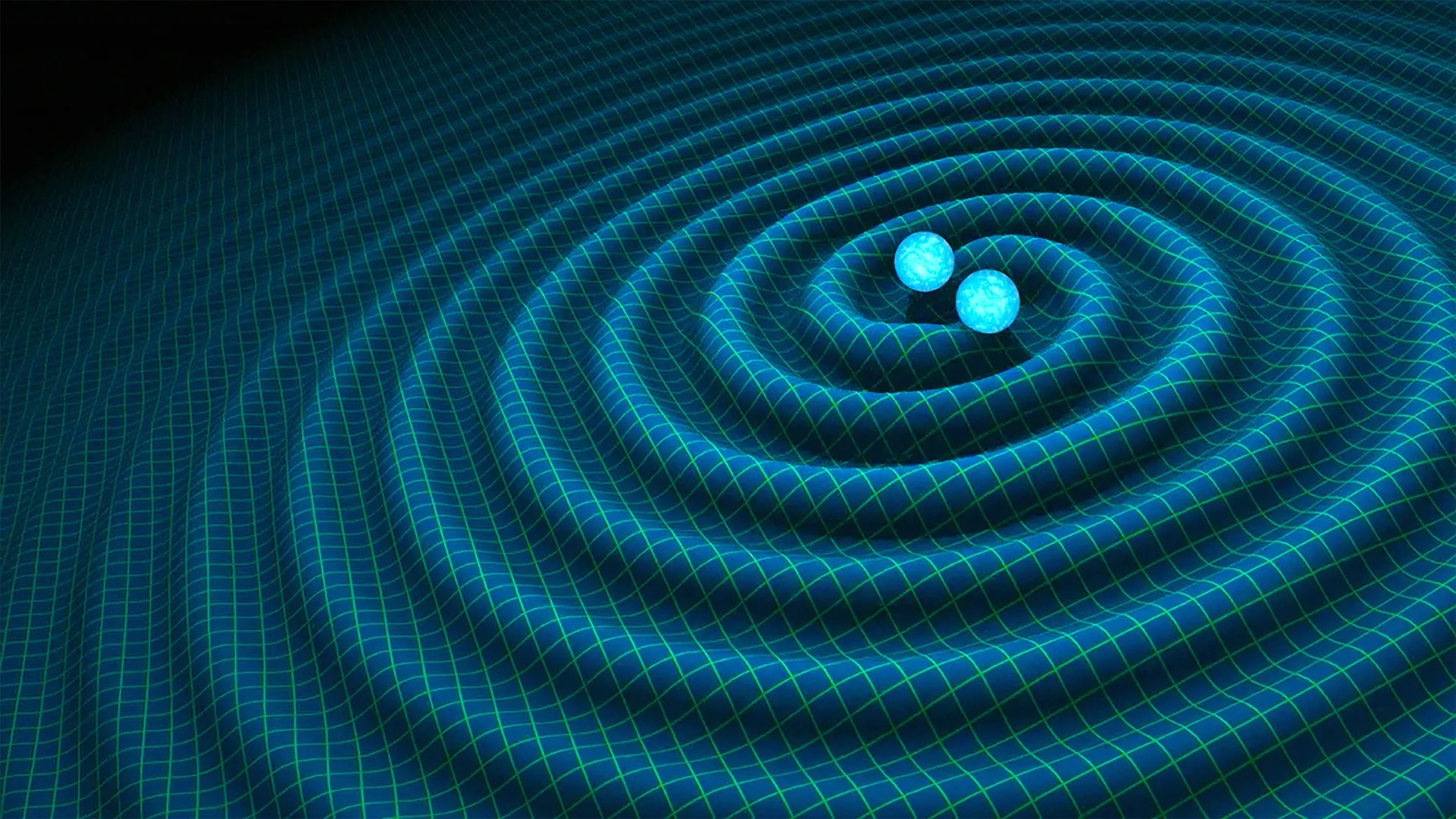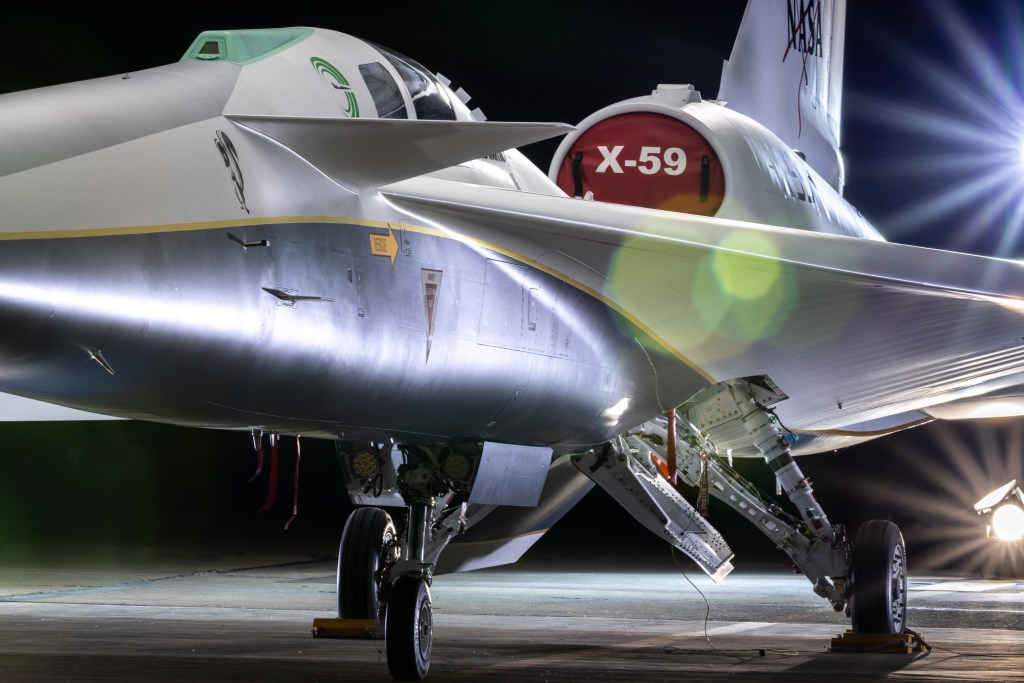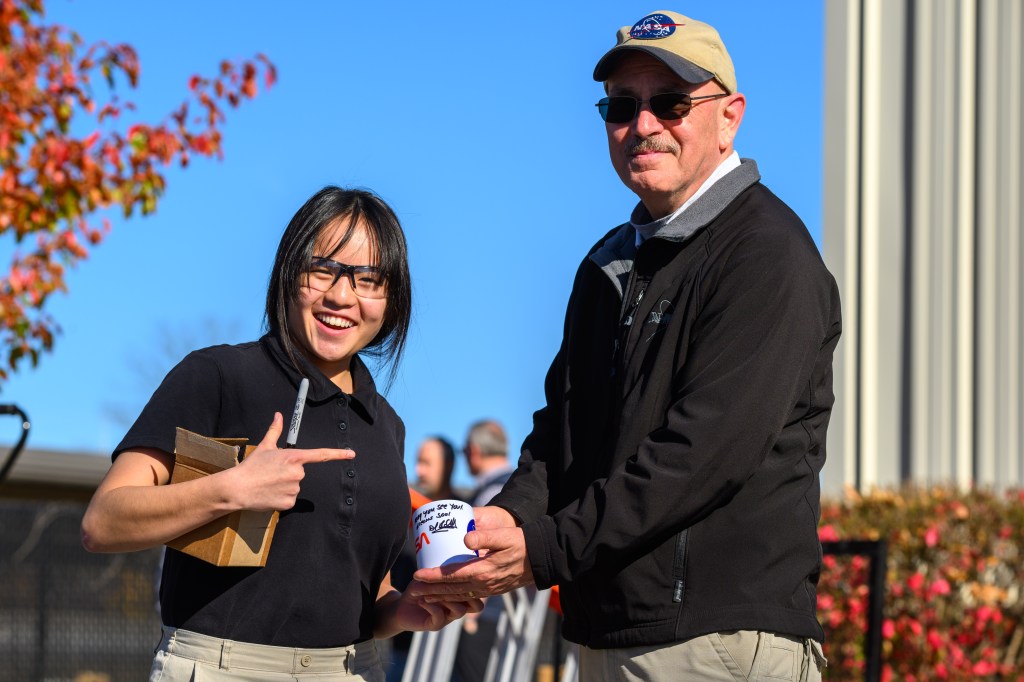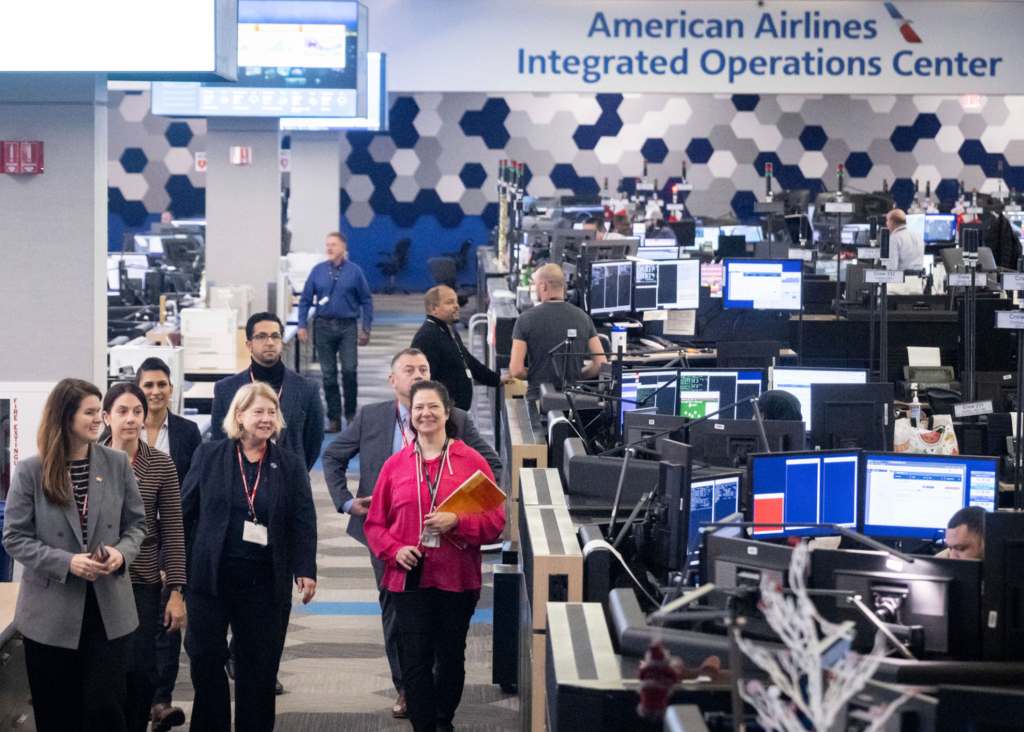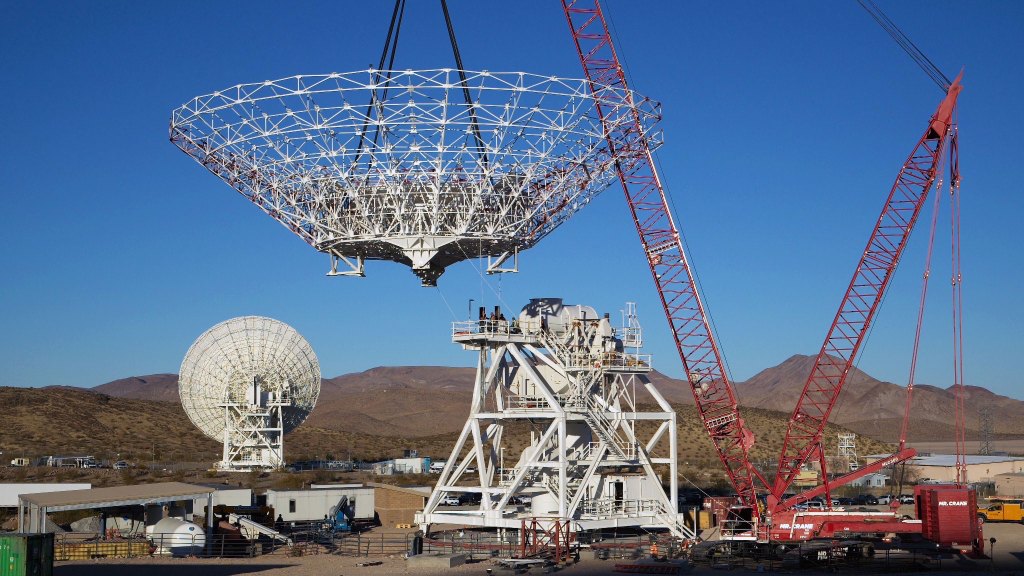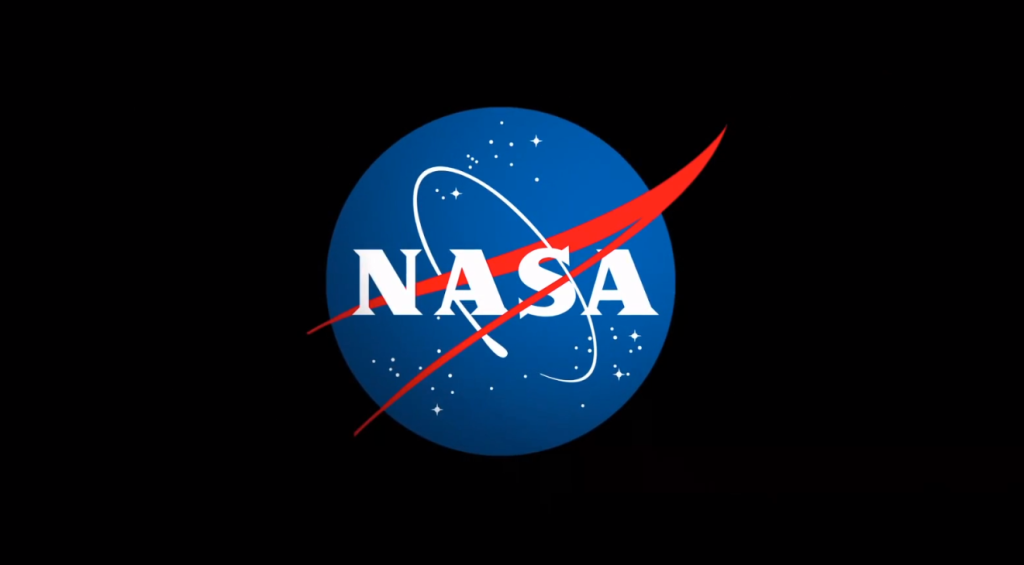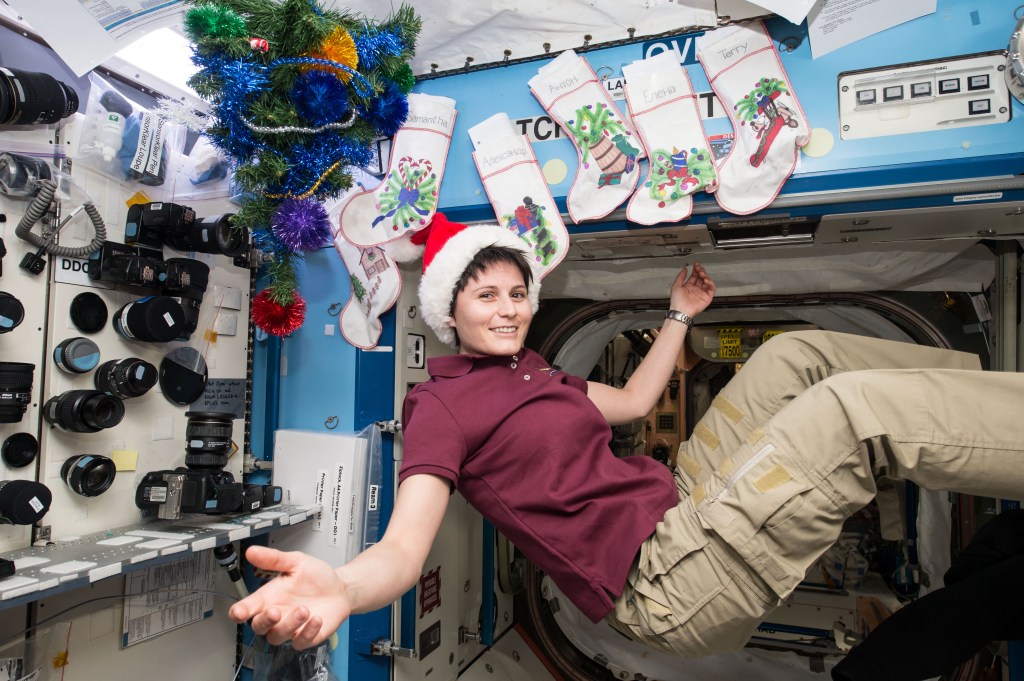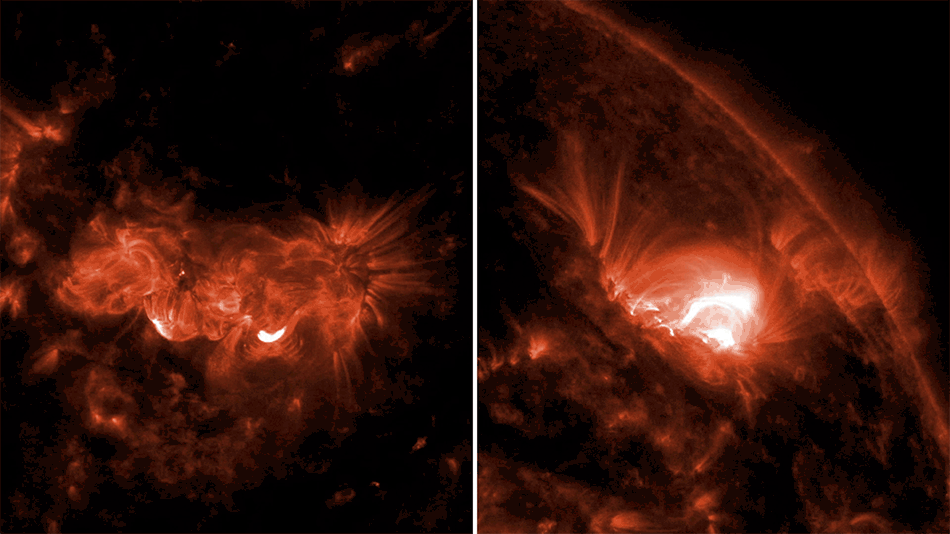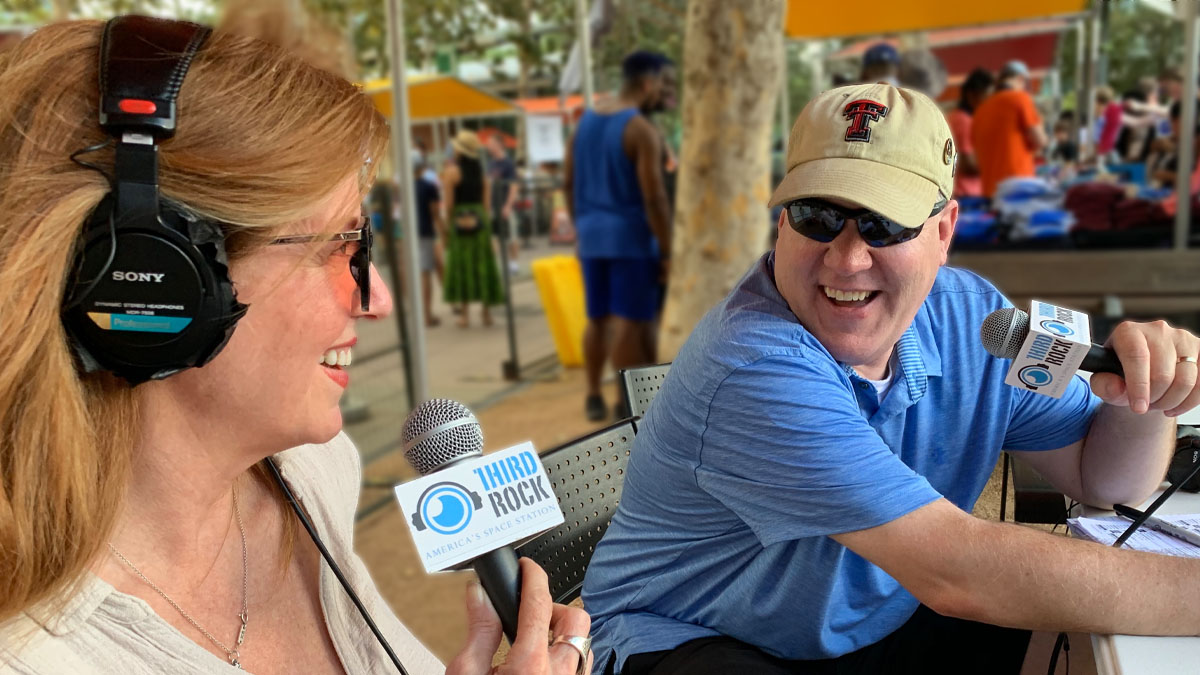If you’re fascinated by the idea of humans traveling through space and curious about how that all works, you’ve come to the right place.
“Houston We Have a Podcast” is the official podcast of the NASA Johnson Space Center from Houston, Texas, home for NASA’s astronauts and Mission Control Center. Listen to the brightest minds of America’s space agency – astronauts, engineers, scientists and program leaders – discuss exciting topics in engineering, science and technology, sharing their personal stories and expertise on every aspect of human spaceflight. Learn more about how the work being done will help send humans forward to the Moon and on to Mars in the Artemis program.
On Episode 224, on its 10th anniversary, Third Rock Radio hosts share the history and evolution of the partnership with NASA and bringing space to the airwaves. This episode was recorded on November 22nd, 2021.
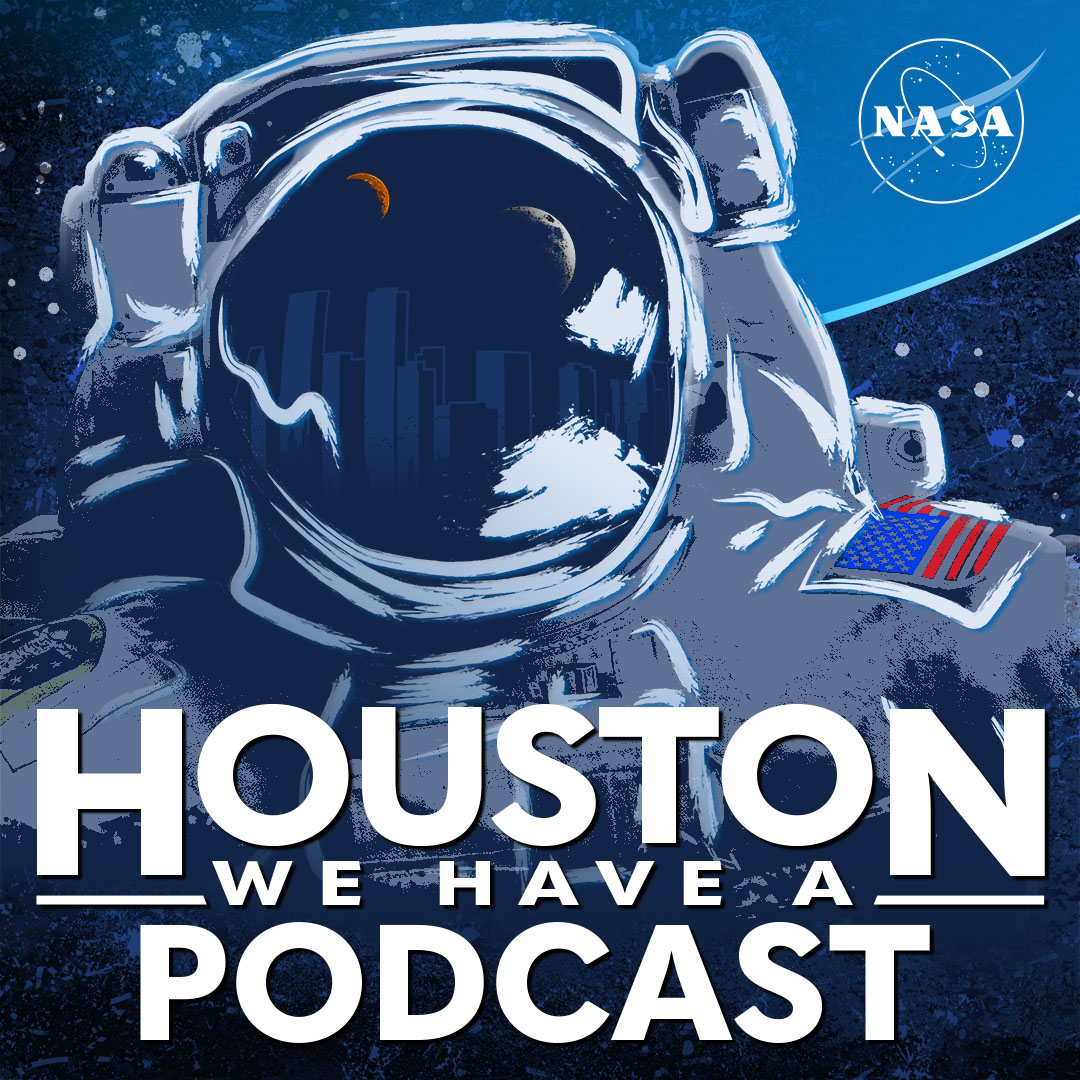
Transcript
Gary Jordan (Host): Houston, we have a podcast! Welcome to the official podcast of the NASA Johnson Space Center, Episode 224, “Radio Waves.” I’m Gary Jordan, and I’ll be your host today. On this podcast, we bring in the experts, scientists, engineers, astronauts, all to let you know what’s going on in the world of human spaceflight. NASA is always looking at new and interesting ways to reach out to the American public and share what we’re doing. You see it often with social media, a rapidly-changing medium with new platforms popping up all the time. You see it with our mission broadcasts and how they’ve changed for NASA’s Commercial Crew Program. And you’ve definitely heard it on podcasts – this one and maybe some of the other ones we have at NASA as well. NASA also partnered with a radio station called Third Rock Radio to share NASA’s story through audio platforms. Third Rock is about to celebrate their 10th anniversary. So, on this occasion, we thought it’d be a good time to bring in some guests to talk about this relationship, this medium of online radio and its history. Joining us are Donna McKenzie and Steve Robison, both radio personalities at RFC Media. They both have a lot of experience in radio, and they share what this medium offers to share NASA’s message over the past ten years. So, let’s get right into it. Enjoy!
[ Music]
Host: Hey, Donna and Steve. Thank you so much for coming on Houston We Have a Podcast today.
Donna McKenzie: Great. We’re so glad to be here.
Steve Robison: We’re big fans of you, Gary. So thank you.
Donna McKenzie: Absolutely.
Host:[Laughter]. Well, it’s great to have professional radio personalities on. I think this is going to be fantastic. Happy 10th anniversary to Third Rock, to the both of you.
Donna McKenzie: Thank you. Thank you. We’re so excited.
Steve Robison: Yeah, it’s coming up.
Host: Yeah, right around the corner. I think this is the perfect time to just dive into what you guys are all about at Third Rock and get a little bit into talking about just your background and what got you to where you are. Donna, we’ll start with you. Both of you, longtime radio personalities, in radio for a long time; me, I feel like compared to you guys, I am just getting started. So tell me about, tell me about your career there, Donna?
Donna McKenzie: Well, I started in college, and I just stayed with radio as my career. I was always a huge fan of music, just obsessed with music, and I just found a way to work in the industry. And I love being around music and musicians. But the most interesting thing about being in radio for the long time is how you develop a relationship with your audience. And that is super-rewarding, you have a chance to do a lot of things that are pretty cool. So, I’ve been in Houston radio for quite a long time, and I’ve moved into doing some online stations as well, also other voiceover business that I do for the concert industry. But Third Rock is a passion, absolutely. So, I’m super-happy to be here.
Host: And you’re talking about connecting with your audience and developing a relationship, how have you seen that change, just over your career, right? Because radio has changed over time, how have you seen that change, a connection with the audience change, as technology gets better?
Donna McKenzie: You know, technology gets better, yes, but it doesn’t necessarily mean that it’s great for terrestrial radio. So online radio is pretty much where the growth is. And so, it’s a little bit of a different animal, but you still have the opportunity to connect with an audience, to do things that matter. And I think technology has just made better radio more accessible to more people, and things like Third Rock possible, because it couldn’t be the way it was before, you know, the internet. So, it’s evolved, definitely.
Host: And we’re definitely going to get into that today, just what, you know, what internet radio is and a little bit more about that growth as well. Before we get into that, Steve, tell me a little bit about yourself.
Steve Robison: Kind of a similar story. I was in college, I knew I wanted to do media, I just didn’t know what. And then I got a tryout at the radio station, the campus station, and I just fell in love with it, and I’ve been doing it pretty much ever since. Similar to Donna, I came back to my hometown of Houston, and I’ve been working in radio here at various stations throughout the years. And then I went to Birmingham, Alabama for a while, opened a few radio stations there; came back home when the creator, pretty much, of Third Rock Radio asked me to come back home and help do some projects with him. And I’ve been doing Third Rock ever since.
Host: Well, let’s get right into that then. Both of you are talking about Third Rock, and I’m sure a lot of our listeners are thinking, OK, I want to know what this is. So tell me a little bit about that. Steve, we’ll start with you, about what Third Rock is, its goals, just internet radio. What is Third Rock?
Steve Robison: Third Rock Radio was a brainchild of a couple of people here at RFC Media. And basically, the idea was taking the idea of discovery, and that’s almost the metaphor that we use, is we want people to be able to discover new music, and we also got the idea, since we are based in Houston, why not work and let people discover what’s going on with NASA. So, what we like to call ourselves is the biggest cheerleader for NASA. Whatever NASA is involved with, we want to be a part of it, we want to spread the word about that. So, we try to give people who are listening to Third Rock Radio not only the best new music that they can really get into, but we use that, the music, as a platform to kind of bring them in and they’re learning about NASA and things going on with STEM (science, technology, engineering and mathematics) programs and space. And just that’s kind of the way we hook them in, is by great music and then we like to teach them as much as we can about what’s going on with NASA and the space program, and stuff at JSC and all around.
Host: It sounds like a bait and switch, but if you like music and you like space, I think it works out, right?
Donna McKenzie: [Laughter] Pat (Fant) likes to say that we wrap the message of NASA around something that really matters to, you know, young adults, which is music. So that’s just sort of the way that we present it.
Host: OK. So it sounds like your audience is young adults, you’re getting them the music that they’re enjoying and you’re teaching them about stuff that they may be interested in them. Where are people coming in from? How do people get to listen to online radio?
Donna McKenzie: So, you know, you can launch Third Rock on NASA.gov; thirdrockradio.net also, and we’re on the TuneIn app as well. So lots of ways to pull Third Rock in. And we have, since we started, we have been logging, you know, social media interaction with different people and just what countries we’re hearing from, and we have heard from people in over 60 countries that really blew up really fast. For some reason, we’re really big in Brazil.
Steve Robison: I have never been to Brazil, but I want to go.
Donna McKenzie: I know, me too. [Laughter]
Steve Robison: We have a lot of fans there for whatever reason.
Donna McKenzie: Seriously, Russia and Brazil and Sweden and Canada and the UK and Europe, and even listeners from South Korea, Japan, and of course, all over, basically. It’s just, just been fantastic.
Host: Do you get to interact with them at all and see, you know, what are they saying about it? Are they talking to you and saying, oh, I really enjoy this, or I like the music?
Donna McKenzie: Yes. Yes —
Host: Awesome.
Donna McKenzie: — and, you know, what’s interesting is because we really stress new rock discovery and we’re not beholden to any formatics aside from our own standards, people send us music from all over the world — “play my band,” and we have.
Steve Robison: Some bands we have played.
Donna McKenzie: Yes, we have. We’ve solicited music, we can’t play it all, but it’s been really interesting to, to know how people get engaged and really want to hear their music on Third Rock.
Host: Very good. Do you do, are you in different languages, too, you know, if you do Portuguese or something for the Brazilian audience or something?
Donna McKenzie: No. I wish. [Laughter]
Host: That’ll be fun. Yeah.
Donna McKenzie: I actually need to learn Portuguese, but that hasn’t happened yet. I do.
Host: I don’t even know how to say hello in Portuguese, unfortunately. That would be nice a little call out, but —
Donna McKenzie: Well, my best friend just moved there, so I’ll find out for you.
Host: Oh, very good. Very good. Now, Donna, you said online radio, you say has really grown and changed over time; how, how exactly, from when you first started? Let’s take it because we’re talking about Third Rock on its 10th anniversary, taking it from the first year to year ten.
Donna McKenzie: Yeah, the first year. So I was in on the first year. I think Cruze and I were the first two on-air talents for Third Rock, and, you know, we just started ourselves from scratch with the Space Act Agreement and putting the music together and just having the idea of what the target audience might be: people who are engaged in STEM, and people who are totally, you know, interested in music. And, you know, I threw up a Facebook page back then and we were surprised at how much traction it got. So we really had to start by ourselves with social media to grow Third Rock. And that’s pretty much how any internet station grows if you don’t have a bigger platform. And, you know, we were doing all of this ourselves. But eventually, we got more participation and our social media ball was really rolling and Twitter and Instagram. And we were able to, to get it together to do some travel and do some really great shows, broadcasting live for Third Rock. And I think that in itself really brought in new listeners. And it’s just been a fantastic journey. So we’ve been able to do some really, really cool things that the first year I couldn’t have imagined.
Host:[Laughter] Well, tell me about some of the travel. Where were you going? What kinds of folks were you talking to and engaging with?
Donna McKenzie: Well, so over the years, this might come under, you know, the subject matter of some of the things that we’ve brought to the audiences, but I think the first thing that we did was we traveled with our recording equipment to the Intrepid Air and Space Museum for the installation of the Enterprise, the shuttle Enterprise. And we got to interview Charles Bolden, who was director at the time, and just really just be a part of it. And it was just fascinating to be hands on and to meet a lot of people and do some great interviews. And then we did a live broadcast with USA Science & Engineering Festival in Washington, D.C., got to interview a lot of great people there. Then we started getting the idea that maybe we could just kind of have access to an astronaut. That would be so cool.
Steve Robison: Yeah.
Donna McKenzie: You know, to bring a show. And it’s not, you know, we weren’t surprised to learn that a lot of scientists and engineers and astronauts are musicians themselves. So we approached Joe Acaba and created “The Joe Show,” basically stressing, you know, a teacher can become an astronaut, so you can, too. And he was hip to it, so we put together the first Joe show and he was, that was during his year of education on the ISS. And he was just super-happy to do it. And he talked about his pathway to NASA, teaching, his background, and, you know, got to introduce records and be a DJ. And so, we did that. And then we had him back for a second time. We also did the “Mohawk Guy” radio show. Do you remember Bobak Ferdowsi, who was the engineer for…
Host: Oh, yeah.
Donna McKenzie: Yes, yes, with the mohawk. So he was so cool. He was credited with, you know, making science look super hip, you know, no more white shirts and pocket protectors for NASA scientists. And so, we got him, and he’s a huge music fan. So he was a lot of fun to work with. We did a show from the International Space Station with Scott Kelly, where he recorded and sent down all of his parts for a show that we put together for his year in space. And we broadcast live for the 50th anniversary of the Apollo landings, Moon landing, and that was a huge show, we got to really dig into the special details of each of the Apollo missions and pull those features together and present them. And we love doing this. We just live, eat, breathe, and sleep it. And then —
Host: Yeah, I can totally tell from the passion. Oh my gosh. And I was cutting you off. I’m sorry, you’re going to another thing.
Donna McKenzie: [Laughter] Oh, no problem. And then, NASA Moon Tunes, that was a cool love project. So we were approached by, by NASA to, to create a program where we would ask listeners to vote for their favorite tunes in case you want to put a playlist together to have a trip back to the Moon, which takes approximately three days. So we had listener submissions from all over the world. And we, you know, tallied them up and we created a whole weekend of NASA “Moon Tunes,” and it was so cool.
Host: I sat next to the person, Leah Cheshier, who thought about that idea, and it just exploded. It took off. Because I think for exactly the reason that you’re saying is, people are imagining themselves on this three-day trip and thinking —
Donna McKenzie: On a road trip, right?
Host:Yeah, on that road trip. And they want to say, this is what I would listen to. Everybody got to be, you know, they get to put a piece of themselves on this road trip, and I think it was, you know, just extremely engaging like that. And that’s the beautiful thing about music, it seems, in terms of discovery and listening to all these things is that, it’s a very personal thing, right? Everybody gets to add a little bit about themselves to the story.
Donna McKenzie: Absolutely. And it was just a fascinating thing to work on. And speaking of Leah, she is a poster child for why we believe Third Rock matters. Because when we first met her, she said that she listened to Third Rock while she was in college, dreaming of a career at NASA.
Steve Robison: And look at her now.
Donna McKenzie: Look at her now.
Steve Robison: And we get to work with her from time to time; she’s awesome.
Host: Those are the best stories, right?
Donna McKenzie: Yeah, truly.
Host: Because I get those same things. I can talk about data and listenership all I want, but when I hear that a person listens to this podcast, and I’m sure you do the same thing with this radio, listens to that radio and says, man, this is what I want to do with my life, there’s nothing that really means more than that.
Donna McKenzie: Yes, and she’s not the only one who’s told us; we were approached by several different people at some live broadcast who said, I’ve been listening to you and this is what inspired my career trajectory to NASA. Because I think a big part of what excites me about bringing Third Rock and NASA’s conversations to fresh ears is the possibility that you can make a goal, you can follow a pathway, you can follow your dreams. And there is a place at NASA if you work for it.
Host: Steve, I listened to a couple of your interviews, because that’s another thing you do besides playing the music, I’ve seen you get to interview a lot of cool people from all around NASA, from other places. And from what I’ve seen, you know, you’re very engaging in your style of interviewing people, you get people excited, and it seems like it’s an easy thing to do. And I think I can sympathize with you on this because it’s the same thing on this podcast is, it’s really easy to reach out and try to get someone to be passionate about what they’re talking about because they already are. You find that just in anyone you talk to at NASA.
Steve Robison: No, I totally agree with you. And that’s been a lot of fun. I get to do a lot of the interviews here. And I’ve met so many people that are at NASA that, to be honest with you, I didn’t know they were over there. I didn’t know who they were, and we did a feature a few years ago, because there’s so many people who work within NASA and all the different aspects of it, and I put together something I just called, you know, Faces of NASA, and where I just would pick somebody and say, OK, I’m going to interview this person whose job is this and this and this. And I will get them on the line and talk with them. And it was just a blast because the stories they had, and people wouldn’t know who they were, but how important and integral they were to whatever mission they were working on at the time. And it was kind of fun for them because they got to, you know, talk about their gig, and then I had fun with them because I didn’t know anything about what they did. But I got to learn about it. So it was just a mutual love fest. And we had a lot of fun doing stuff like that. But I’ve had a chance to interview a lot of people who have worked at NASA. I mean, in my work in terrestrial radio, it was a big deal to interview musicians and whatnot, and I still get to interview musicians with Third Rock, but I mean, I’ve had a chance to interview astronauts, people who have been on the Moon, in space. And that’s — mind blowing, if you think, it’s like, wow, look at this guy I’m talking to. So I kind of freak out sometimes when I’m interviewing these people.
Host: It’s a very natural thing to do just because of how, I mean, you’re talking about very, very interesting aspects of interviewing very cool people in the music industry and very cool people in the space industry, and that’s what I want to explore here for a second, is just this marriage. Donna, you talked about earlier in the career when you were talking about the Space Act [Agreement] with NASA and bringing these ideas of discovery together, discovery with rock and discovery with space. How did that inception come about and that approach to NASA saying, hey, I have this crazy idea, why don’t we mix Rock and NASA?
Donna McKenzie: So our fearless leader, he is Pat Fant, and he has come up with some crazy ideas throughout his lifetime. But he is the one who — I asked him earlier today, I said, so how did you first conceive of it? He said, well, I was sitting in the parking lot eating a hamburger, and he said, you know, I was thinking, wouldn’t it be cool if NASA had a radio station and we can do that. And just putting the message out there for, for NASA to people who are interested in music and maybe interested in STEM but don’t know everything that’s, I mean, you really aren’t going to get a billboard up that says, sit down with the NASA website and spend every day all day. We do it for you, you know? So there’s so much content and so much information and tools for people to have their pathways and inspiration to NASA on the website. And we draw from that every day. And so, it just became a really cool way to present it, not too sciency, not too preachy; sound bites wrapped around music, and just cool stuff because it’s endless. And we thought that, that would be a great way to basically get some great music going but also to wrap NASA’s message around it. We’d like to say that we’re huge NASA geeks and we believe music matters, so we put it together every day.
Host: Wonderful. So what does the Space Act [Agreement] allow you to do? When you come into an agreement with NASA, and you say, hey, we want to tell this story, does that provide you maybe better access to, to certain materials and information and allow you to tell these stories?
Steve Robison: It does open some doors because once people say in Washington here, we have a Space Act Agreement, they’re like, oh, OK. So, we can talk to you about this kind of stuff. And basically, the Space Act Agreement is just, you know, we’re working together with NASA and that we don’t receive money from, say, taxpayers or anything like that; anything that we do, monetarily, it’s all sponsor-driven by people that we have sponsorships and partnerships with. But the Space Act Agreement has been great for us because it has allowed us access to talk with you, Gary; it’s allowed us access to talk with a lot of people in Washington and other parts of NASA that we may not be able to talk with. So it’s been great to have.
Host: Yeah, and I know from the NASA side, reading into the Space Act, the idea is we’re always trying to get our messaging out there in various forms to various audiences.
Steve Robison: Sure.
Host: And this was just a new one, internet radio. So let’s find the ways. Our charter is to get that message out about NASA and what we’re doing. And so, what’s the best ways to do that? And so, it’s a mutual relationship you guys got, great —
Steve Robison: Absolutely.
Donna McKenzie: Absolutely.
Host: Yeah, yeah, very much so. Now, the interesting part here, I think, that is unique to at least a lot of the guests that I talk about, or talk with, is that you have this idea of music, too. And this is, you know, I do these podcasts and I talk a lot of science objectives, but I never get to dabble too much in the music. So tell me about this world, about how you mix the — what kinds of music are you playing? Where are you pulling it from? How are you mixing it in with this NASA content?
Donna McKenzie: Go ahead.
Steve Robison: Go for it like, We’re both —
Donna McKenzie: Me, me, me. [Laughter]
Steve Robison: Go ahead, Donna. You go first.
Donna McKenzie: Well, let me just say that you would be surprised at how many artists are just NASA geeks, huge fans. Like Steve and I were at a show once, it was My Morning Jacket, and the lead singer had a NASA shirt on, you know? When went down to tour the Johnson Space Center, we saw all the signatures of all these rock stars who had been through and done the same tour and were huge fans.
Steve Robison: Just in some of the interviews I’ve done, like I interviewed Ed Robertson the other day from Barenaked Ladies, and I did not realize this but back in like 2013, they worked with the astronaut who was onboard the ISS, and I’m drawing a blank on his name, I want to say Tim Matthews [nope; it was Chris Hadfield], but bottom line, they did a song together, he did kind of like what we did with Joe Acaba, he was performing on the ISS, and the band was down here on Earth, and they performed together. So, a number of the interviews and people that we’ve come across in the music world are huge NASA fans. And in fact, when they come through Houston, they get tours to go visit Johnson Space Center because they want to see even more about NASA. So it’s been good in that regard.
Host: You know, it sounds like this, this idea of bringing rock and just music in general and space together, sounds like when you’re talking to musicians, it is an easy way to inject space into the conversation. And it sounds like a lot of them are already engaged in some way, shape, or form. So that marriage, it seems like, is making a lot of sense just in the music realm by itself.
Steve Robison: I had an interview with a guy named Dan [Armbruster] from the band Joywave, and he told me that it was right before the Perseverance launch, I want to say, and already he had planned a watch party at his house. They were going to be watching the launch with other, not only their bandmates but other bands that they have toured with and stuff like that. So they’re out there, and they make up a big part of what we do here at Third Rock.
Host: So in terms of — oh go ahead, Donna.
Donna McKenzie: Oh, just one of the things that, that we knew is that there are generations of people who did not grow up with the romance of the Apollo Moon landing. You know, I did, but a lot of people who are Third Rock listeners, you know, they weren’t even born yet. So the romance of a certain generation that’s older is a little bit missing with younger people. So we wanted to try to put something super-engaging and bring it closer together and bring the romance and the excitement and the discovery and the possibility of NASA to a younger audience. And so, Steve is the musical director, he picks the music. I think our target audience is anywhere between, you know, high school and young adults, and anyone who’s interested. We have no way of knowing exactly the demographics, but we have a huge audience.
Host: So you’re playing a lot of new music then, new rock.
Donna McKenzie: New rock discovery.
Host: So, this is the idea of discovery, right? Is you’re not playing the classics; you’re always playing the new stuff?
Steve Robison: Well, there’ll be some classics in the alternative world, in the modern rock world. Bands like, for example —
Donna McKenzie: Foo Fighters.
Host: Yeah, Foo Fighters have a new album out, we’re playing a lot of stuff from that. Coldplay has a new album out; Lorde has a new album out. So we’re hitting on some of that stuff, but we’re also trying to break some new bands as well that are out there that are making some noise. And just from my history of doing programming in terrestrial radio, I still rely on record companies. They let me know, hey, this band’s going to be out with something new in a couple of weeks, you may, you know, so I’ll be on the lookout for it. So I’m always keeping my ear to the ground, if you will, with relationships with music labels on what’s coming and what we need to be, you know, wanting to get on top of as quickly as we can.
Host: So you’re playing all the latest music, you’re introducing the audience to new stuff, you’re trying to stay current with, and then obviously, you’re playing some of the, some of the classics as well. What other sorts of content? We talked a little bit about it, now a little bit of spoken content and everything, but what other sorts of content can folks find on Third Rock?
Steve Robison: We do a number of what we call benchmark features that just give more insight on what’s going on with, not only NASA, but with other, you know, we do a series called “Innovation Now,” which just, it’s something that we get information on about the new innovations, if you will, new inventions, new technology that we think our audience would embrace. So it’s not 100% NASA, but there’s also stuff about technology and even more STEM interaction that we like to let people know about. And then we do our live breaks where Donna and myself, and we have Pam Kelly at night, we all talk about the various things going on, not only in NASA, but stuff that we just think may be intriguing to our listeners.
Host: Mm-hmm. So you’re very much staying current I think with a lot of things, not just with music. You’re staying current with, you know, bringing on new guests, telling new stories. Now, how do you stay current with NASA? We talked about the relationship with NASA and the Space Act Agreement. But how are you bringing in that fresh content? What are you doing from a radio perspective when there’s a mission going on to try to engage an audience in something that’s happening right now?
Donna McKenzie: Every day, all day, on NASA.gov.
Host: Because it’s that exciting? That’s great.
Donna McKenzie: Yeah. Well, it changes so quickly. You know, things get posted. You know, if I’m trying to work ahead, sometimes I have to go back because something popped up and I want to make sure that I don’t miss putting it on the air. But every day, all day, NASA.gov. We also get an inside newsletter of current events for the week from Jeannie Aquino down at NASA.
Host: Oh, yeah.
Donna McKenzie: And so, it’s just endless, the amount of information that you can mine, our news websites and NASA.gov, all the different segments, the technology, the human exploration, Earth sciences. It’s just, we can’t actually fit it all into a show. So every day, all day, we just got to schedule our breaks and see what is top of mind and what is present. And we direct people to NASA.gov for different events.
Steve Robison: Right. And one thing I would add is that we’ve developed throughout, you know, celebrating ten years in a couple of weeks, we’ve developed a lot of great relationships with people, not only at Johnson Space Center but also at national Headquarters for NASA. So we can call them up and say, hey, you know, we know this mission is coming. What’s your hot button right now? What topic do you really want us to cover? And we’ve gotten to know them well enough that they’re like, yeah, well, you know what, the DART (Double Asteroid Redirection Test) mission is happening this week; you may want to hit on this, dah, dah, dah, dah, dah. So it really helps, because like I said, we’re kind of the cheerleader, and we want to talk about what you guys want us to talk about. So that’s kind of how we kind of navigate through all the stuff. Because Donna is right, there’s a ton of content out there.
Donna McKenzie: Ton.
Steve Robison: Which is exciting, but it’s also overwhelming at the same time.
Host: Trust me, you’re talking to a guy who’s —
Donna McKenzie: You know the feeling. [Laughter] You know the feeling.
Host: Oh, yeah, constantly overwhelmed. Just, you know, it takes, it’s a lot of energy to work on this stuff, but then, and it’s actually works out in my favor in a way because when I do something like this with a podcast is, I’m actually have too many things to choose from.
Steve Robison: Yeah.
Donna McKenzie: Sure. That’s it.
Host: And there’s so many stories to tell. So many things happening concurrently. And it sounds like you guys are witnessing the same things, especially recently. I don’t know if you guys are witnessing the same things, but just in the past couple of years, how many things are happening concurrently, at the same time? It seems like a very dense time.
Donna McKenzie: Right, it is. Absolutely.
Host: Yeah. I mean, we have the International Space Station, and there’s all kinds of missions going up there. We have spacewalks, we have Commercial Crew, we have science, there’s just, there’s just, that constant stream of things. We have Artemis, and then I’m sure you guys are not just a human spaceflight, you already mentioned things like DART, the asteroid redirect mission. There’s a lot of probes and stuff. There’s just so much activity, so much to learn. And I wonder if you’re just pulling from NASA, or are you exploring some of the commercial elements as well? Because now NASA is really not the only player in the U.S. town, right? We got commercial companies; even in Houston, a lot of commercial companies in Houston working in space and contributing. And so, there’s even more to tell if you go outside of NASA.
Donna McKenzie: Sure. Yeah. We search not just NASA.gov, but also every NASA news story, or related news story, or space-related news story, or even covering topics like SpaceX, or ULA (United Launch Alliance), or just technology, even, that may or may not relate to NASA, but it’s cool to someone who’s interested in STEM. So, we do cover a lot of new stories that are interesting in a science way, especially if it’s related to NASA. So we do pull from a whole lot of sources.
Host: Steve, when you’re, when you’re constantly discovering new music and constantly looking for the latest things happening at NASA, there’s got to be this aspect of learning: you’re learning about new rock, you’re learning about new music, you’re learning about new generations and just new, new content, new things happening in space. As you’re doing this throughout the years, what are you really taking away from this marriage of worlds of rock and space?
Steve Robison: I’m blown away by, by how much I learn every day, things that, you know, I consider myself somewhat in the know on things, but every day it feels like I’m learning something new when either I am interviewing somebody from NASA or some of that world or just in learning about stuff that I — because when we’re on the air, we don’t want to sound like we know what we’re talking about, if that makes any sense. We are just big fans and space geeks who really, and I’ll be reading a story going on, and then on Thursday, and I’ll be like, wow, I can’t believe this is really going to happen. But they’re doing this DART mission. You know what? Just for example. And it’s exciting. I just get really excited about some of the stuff I’m learning about and having the chance to talk about because I’m a fan and I just I don’t want to come across as a scientist or like I know. I mean, I’ll even on the air say, look, this is way over my head, but I’m going to tell you about something real quick. So if you want to learn more, you can go to NASA.gov. That kind of thing. That’s my approach, at least.
Host: Well, see I have to have the same approach. I’m not a scientist or engineer myself, I’m, marketing as my background, and communications. And so, I have to have this approach. And I’m curious about yours, because I have to sit down and I have to talk to these super-smart people, almost intimidatingly smart people, about topics that I have no idea about. But it’s my job to try to pull out the right information so that the audience can understand what this person is saying. And it’s an intricate balance. I’m sure you both can appreciate where you want to pull out the best information, but you want to make sure you’re doing it right and you want to make sure you’re approaching the audience in a way where you’re not over or underestimating their intelligence. It’s that sweet spot of just getting the right information out of a guest.
Donna McKenzie: Yeah, it’s just bringing the enthusiasm to the question, you know?
Host: Right. Exactly.
Donna McKenzie: And when you interview someone, like how you do it, you know, you have to be the surrogate for the audience, you’re the lay person. You know, you’re not expected to be as smart as the guest. And we’re not expected to know everything about the missions in the science that we talk about, but just bringing the excitement about discovering it, learning about it, thinking about it, dreaming about what’s possible. I think that’s where, that’s where I come from.
Host: So you have to have some sort of inherent interest in this sort of thing. And I think both of you, from what I’m getting, just from talking to you, is both of you have an interest in space. Now, when we talked about your career and your progression throughout radio, it sounds like radio and music, and that’s sort of always been there. But I wonder if space has been there or if that’s something that you sort of built over time?
Donna McKenzie: For me, my dad worked at NASA.
Host: Really? OK.
Donna McKenzie: Yes. So, he did for a couple years, he was on loan from the Air Force, but he suited up and did T-38 training missions with the astronauts who were training. And he didn’t really tell us exactly what he did, but it was so cool that, you know, he retired from NASA, essentially. And we were always big NASA fans, and of course, he was in aerospace anyway. So that’s where I come from. So that’s just natural to me. And I could not believe how this actually happened, that I get to work on a station that is associated with NASA, that brings the message of NASA. So kind of like a dream.
Host: As sort of like curiosity with what your dad was doing, you always have questions for him. And so, it’s that idea of constantly learning like, dad, what were you doing? He’s like, oh, you know.
Donna McKenzie: Not much.
Host: Not much. Right?
Donna McKenzie: Not much.
Host: That’s what you get out of him.
Donna McKenzie: Exactly.
Host: Steve, what about you?
Steve Robison: Well, for me, I’ve been in Houston since I was two. So, of course, NASA is in our backyard, so I always was aware of NASA and the Johnson Space Center and whatnot. I worked in radio because of music and concerts and the immediacy of the medium, which is one of my favorite things about it is how we can turn on a dime and start talking about something else or just moving into a different direction in terms of promotion, let’s say. But NASA has always been here in Houston. And when I had the chance to come work over here at RFC, and I knew about Third Rock Radio, I just knew it would be something that I would fall in love with, because as much as I like discovering new music, I like learning about stuff like this, too.
Host: So Houston, in your backyard is space, do you find the same thing for music as well that there’s a decent music scene here?
Steve Robison: It depends on what genre you’re looking for. I mean, Houston, the rock scene has kind of ebbed and flowed over the years, but there’s a viable hip-hop scene here in Houston. There’s a viable country scene that’s growing in Houston; Texas music is really big in Houston. So depending on what you’re looking for, you can find it.
Host: Yeah, yeah. OK. And that’s very interesting. I’m a metal fan, myself, and Houston is —
Steve Robison: Me too. Let’s talk shop, Gary; let’s talk shop. [Laughter]
Host:[Laughter] Well, I have a great time in Houston, I’ll tell you, because the live music scene for metal is fantastic.
Donna McKenzie: Great.
Host: So that’s where I’m married to.
Steve Robison: Gary, we’ll talk off the air because I got to catch up with you on some of this stuff.
Donna McKenzie: Do you know the band Oceans of Slumber?
Host: I do not. I do not.
Donna McKenzie: That’s your next new favorite band. I’ll send you a note.
Host: OK. All right. I’m going to look them up. Now, this is great. See, I’m talking to the people who are music discovers. This has been so good.
Steve Robison: I was a metal head all throughout high school. And then I went to college, I broaden my horizons, but metal is still my thing. It’s always going to be there, so.
Host: All right. Well, yeah, Houston is the place for you. Look at that. Love it. Love it. Absolutely love it. There is a, you talked about a growth of just internet radio, and it sounds like you’re discovering things all the time, which is great. And let’s talk about the 10th anniversary here for a second, you’re ten years in; I want to talk about looking back about these past ten years, and then looking forward as well. Let’s start with looking back, just both of you reflecting on the 10th anniversary of just, I know, Donna, you mentioned being there since the beginning and seeing it just progress through and just, if you look back on all the stories that you’ve been able to share and all the new music you’ve been able to bring to audiences, just reflecting on this anniversary.
Donna McKenzie: Man, I just was so excited in the beginning to get 100 likes on Facebook, you know?
Steve Robison: That was a big deal.
Donna McKenzie: It was. And then, you know, it was like 10,000, and then it was 20,000. But, you know, we have what we estimate to be a minimum of 30,000 listener connections —
Steve Robison: 30 million.
Donna McKenzie: I’m sorry, 30 million listener connections every year. And we’ve seen the time spent listening, that’s something that we can quantify, go from just a couple of hours or maybe an average of a couple of hours or an average of less than that, to an average of five hours. So, people are spending time with Third Rock. And just to watch those numbers grow means that we know that what we’re doing is vital and that it works. And the more we grow, the more opportunities we get to do cool stuff. So, you know, just to be able to have Scott Kelly on Third Rock Radio for a two-hour show being a DJ is a dream. So what’s possible in the next ten years? I hope we do more travel.
Steve Robison: I’d like that.
Donna McKenzie: Yeah.
Host: That would be nice.
Donna McKenzie: I would love to see a rocket launch.
Steve Robison: That would be very cool.
Host: You’ve never seen one?
Donna McKenzie: I’ve never seen one in person.
Steve Robison: Not in person.
Donna McKenzie: Mm-mm.
Host: No way. Yeah, I’m about to see my first —
Donna McKenzie: I would like to broadcast live.
Host: Oh, that would be great. I’ll tell you what, I’m going to go out to Florida and see my first rocket launch from Florida here…
Donna McKenzie: Oh, wow.
Host:…I think next year, I’m looking to do that. Because I’m always in mission control, and you know, I’m actually talking about the launch from somewhere else. So, I never actually get to turn around and see it, but I’m hoping to do that for the first time.
Donna McKenzie: Wow.
Steve Robison: I think you need a radio team to go with you when you go to Florida. So I’m offering our services for you.
Donna McKenzie:[Laughter] I think he’s offering his too.
Host:[Laughter] We’ll talk offline. I saw one from Russia, actually. That was the first rocket launch that I actually saw.
Donna McKenzie: Oh, wow.
Steve Robison: Oh, wow.
Host: It was fantastic. When we went to — not from Russia, from Kazakhstan; I flew into Russia to do the coordinating — and then the launch actually happened in Kazakhstan. But we were only a mile away. We were so close to the rocket and it was beautiful, beautiful to see. It was cold; we did it in December, but it was beautiful.
Steve Robison: But I bet just seeing the force of that thing taking off, like you said it was a mile away, but I bet you could feel it. I mean, you had to be able to feel that power.
Host: Yeah, you know, you’ve watched a bunch of videos of it, just because I’m in this world, too, where I’m looking at rocket launches all over, and I see them all over on a video all the time.
Donna McKenzie: Right.
Host: But you’re exactly right, you feel them, you hear them, there are several different senses that you’re not aware of when you’re, when you’re just watching a video of it that you have to, I think experience is the best word to capture all the different senses when you’re actually watching a launch physically. So I can’t wait to do it again.
Donna McKenzie: Me neither.
Host: For the first time, Donna, you got to go out there. [Laughter]
Donna McKenzie: [Laughter] Exactly.
Host: Well, so looking forward then. We talked about looking back, and it sounds like just a wonderful growth over the past ten years, and it sounds like you’re planning that for the future. If you can give us a taste of how you think maybe internet radio may have been a new thing not too long ago, but how are you going to evolve that with technology, reaching new audiences, all that sort of thing.
Steve Robison:Well, I think, you know, like you just pretty much hit it on the head, we have grown as this medium and technology has grown, and what would take us days to figure out how to do just to get this music on the air to people, now we can do it pretty quickly. And it’s becoming commonplace. I mean, some vehicles are offering internet radio in their car as part of their radio system, if you will. So it’s growing and growing. And we’ve been able, we have a great team of IT people that work with us. So we’re able to grow as it grows, and we’re just having fun doing it. And I just feel like, just kind of saying or going on the lines what Donna was talking about, our NASA relationships are growing as well. And that’s been a blessing because we’re able to get more information and be a part of more of these cool things that five or six years ago, we wouldn’t be invited to the party. But now, we’re able to attend and be a part of it. And people come to us from NASA and say, hey, do you guys want to do this? Do you want to be on Houston We Have a Podcast? And we’re like, absolutely, we want to do that. So it’s been a win-win for all of us.
Host: Yeah, it seems like it’s a growing community, too. Just, you know, this is why we’re doing this podcast, too, it’s a new way to reach new audiences.
Steve Robison: Sure.
Donna McKenzie: Yeah. We’re so excited.
Host: I think it’s part of what we’re all trying to do, right…
Steve Robison: Yeah.
Host:…is we’re all trying to share this wonderful message and engage people. And I think, Steve, one of the things you mentioned, I think, that’s super-important is you mentioned you were having fun doing it. And I think that’s, I think that’s really important, not just for ourselves, I think selfishly we can all say we have a lot of fun getting to talk to super cool people, but I think that fun translates into engagement.
Donna McKenzie: Absolutely.
Host: And when we sound excited, I think the audience gets excited. And then we get those stories like what you were talking about where you get a listener that is so inspired by what you’re saying and doing and feels what you feel that they want to have a career at, you know, whether it’s in space and engineering/math. I think that’s the ultimate goal I think for all of us.
Steve Robison: I agree.
Donna McKenzie: Absolutely.
Steve Robison: I think you’re spot on.
Donna McKenzie: You can come on Third Rock anytime.
Host: I’m going to hold you to that. I’m going to hold you to that. [Laughter] Well, this was super-fun. I really enjoy talking to you guys and connecting. It seems like I like to talk to folks who are, you know, it seems like we’re in different worlds. But at the same time, I think it’s very apparent…
Donna McKenzie: We have the same goals. We have the same missions.
Host:…we have the same goals. Exactly, Donna. And I think getting to talk to you, I already feel inspired and I hope our listeners do as well. I hope they check out Third Rock, and happy 10th anniversary to you both. It was a pleasure to have you both on. Thank you.
Donna McKenzie: Thank you so much.
Steve Robison: Gary, thank you so much. This has been a lot of fun.
Host: Awesome.
[ Music]
Host: Hey, thanks for sticking around. I had a lot of fun talking with Donna and Steve today, and I hope you learned something about internet radio, and honestly, the great conversations that we get to have on both ends. If you’re interested, check out NASA.gov for the latest, and from there you can find the link to Third Rock Radio. We are one of many NASA podcasts across the whole agency. You can check us all out at NASA.gov/podcasts. If you want to talk to us specifically on social media, we’re on the Johnson Space Center pages of Facebook, Twitter, and Instagram. Just use the hashtag #AskNASA on your favorite platform to submit an idea or ask a question. Just make sure to mention it for us at Houston We Have a Podcast. This episode was recorded on November 22nd, 2021. Thanks to Alex Perryman, Pat Ryan, Norah Moran, Belinda Pulido, and Jeannie Aquino. And of course, thanks again to Donna McKenzie and Steve Robison for taking the time to come on the show. Give us a rating and feedback on whatever platform you’re listening to us on and tell us what you think of our podcast. Happy 10th anniversary to Third Rock. We’ll be back next week!


